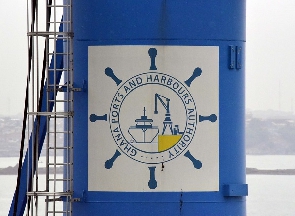Shippers, and by extension, consumers of imported goods will be at the receiving end of a “trade-off” between the state ports operator Ghana Ports and Harbours Authority (GPHA) and Meridian Port Services (MPS), the private operator of the Tema Port Terminal 3, the Business24 has picked up.
In order for the state ports operator to secure 20 percent of containerized vessel jobs—after initially ceding 100 percent of the business to MPS—the GPHA has to approve the request of the latter to adjust its tariffs to make up for any revenue loss.
The GPHA will need that percentage of the business to cushion its operations and to save thousands of workers from losing their source of livelihood.
MPS however argues that shedding that percentage of vessel jobs without the corresponding increase in tariffs could see it losing revenue, which it considers to be “unfair” and “unacceptable”.
Already, the Deed of Amendment (DoA) of the MPS’s concessionaire agreement with GPHA gives MPS the exclusive right to increase tariffs as and when some technical or market factors put their US$1.5bn port investment in jeopardy.
However, in December last year, the GPHA failed to comply with the adjusted tariffs that were set by MPS as agreed in the DoA.
An initial request to increase shore-handling tariffs by between 80-200 percent on some service fee items was beaten down to 40 percent by the Transport Ministry amid protests from the port community.
The new tariffs are therefore an attempt to recoup the lost revenue from that action and to make up for parting with some container loads to GPHA—but the bone of contention has been the decision of MPS to target its new charges at the marine side, which is the shipping lines.
Also, though the DOA states that both the landside and the marine side should be increased, it appears that the burden has been put on only marine side which has seen full tariff increase in December, something the shipping lines see to be discriminatory.
The GPHA, in a letter to the Ghana Shippers’ Authority (GSA) to seek institutional support for the tariff increase, admitted that its rejection of the full implementation of MPS’s shore tariff in December 2019 made the latter suffer some revenue gaps.
“We tried to argue for any adjustment to be considered from 2021 but could not defend that stand, especially when we are negotiating to share 20 percent of the container volumes, which we know was not provided for in the DoA,” part of the letter to GSA read.
The proposed new tariffs to be borne by the shipping lines are US$10 per TEU for port dues, US$15 for stevedorage, US$5 for craneage and US$5 for an empty TEU and they are to be implemented effective September 1, 2020.
This means that per the new charges, every shipping line will be surcharged an additional $20 on every 20-foot container per TEU.
According to the letter, the new charges “will compensate for the loss MPS is incurring on the shore-handling tariffs”.
In a virtual meeting with the state ports operator last month, the shipping lines rejected and protested the proposed new tariffs, demanding further justifications.
“When this increase comes, it is going to be passed on to the market; the shipping lines are definitely not going to absorb it,” an aggrieved shipping line representative told Business24.
Every business has suffered during this covid period and the shipping industry itself is struggling with companies posting huge loses, so this can obviously not be absorbed as they have done in the past,” the representative further indicated.
The other side of the argument, which the paper picked up, was the basis on which the GPHA was also going to increase its charges because once the new tariffs are introduced by MPS, it will automatically be applied at all the terminals.
Introduction of localised charges
According to the source, the new tariffs were ill-timed considering the impact of the virus crisis on the shipping business. But should they take effect, he said, then it would be time for shipping lines to introduce destination handling charges (DTHC) or increase the liner charges.
“If the industry doesn’t bear with us, then we are going to have certain vessels stop calling at our port due to the high cost of doing business and that will create some sort of mafia monopoly in the system to further drive up cost to the shipper,” the source emphasised.
Click to view details



Business News of Wednesday, 29 July 2020
Source: thebusiness24online.net

















